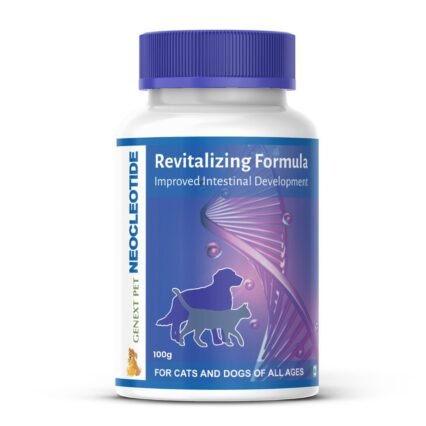Your pet’s immune system is its first line of defense against illness, and when it’s not functioning correctly, the signs can be subtle but profound. Low immunity could be why your dog or cat keeps falling ill, seems sluggish, or takes longer than usual to recover from minor issues.
Let’s break down the common signs of a weak immune system in pets and what you can do to support their health.
Why Immune Health Is Critical for Pets
A healthy immune system helps your pet fight viruses, bacteria, parasites, and allergies. It supports:
- Quick healing from wounds
- Balanced digestion
- Resistance to infections
- Better energy and mood
When the immune system weakens, your pet becomes vulnerable, not just to frequent illnesses, but also to long-term health decline.
Common Causes of Weak Immunity in Dogs & Cats
Several factors can gradually wear down your pet’s immune defense:
Poor Diet & Lack of Nutrients
Low-quality food, poor gut health, or unbalanced meals can lead to nutrient deficiencies, especially in vitamins, minerals, and amino acids that fuel immune cells.
Chronic Stress or Anxiety
Changes in home routine, separation anxiety, or lack of stimulation can cause stress, suppressing immunity over time.
Overuse of Medications or Antibiotics
Long-term medications, especially antibiotics, may damage gut flora, and since 70%+ of the immune system is in the gut, that’s a big deal.
Environmental Toxins
Pesticides, household cleaners, and poor air quality can all affect immunity.
Age-related Decline
As pets age, their immune function naturally becomes less efficient, making them more prone to recurring issues.
7 Warning Signs of a Weak Immune System in Pets
If your dog or cat shows any combination of these symptoms, it’s worth paying attention:
1. Frequent Infections (Skin, Ear, or Respiratory)
Recurring ear infections, skin rashes, UTIs, or coughs? A struggling immune system might be failing to fight off common pathogens.
2. Slow Healing from Wounds
Scratches or cuts that take too long to heal (or get infected easily) often indicate poor immune cell response.
3. Low Energy or Constant Fatigue
A normally active dog or curious cat becoming sluggish, withdrawn, or always sleepy can signal an internal immune imbalance.
4. Digestive Issues
Frequent diarrhea, gas, or food sensitivities may point to poor gut health, a major player in immunity.
5. Unexplained Weight Loss or Muscle Loss
Something deeper could be off if your pet eats normally but keeps losing weight or muscle tone.
6. Allergies or Chronic Itching
Excessive scratching, biting, or recurring hot spots might not be external, but a sign of immune hypersensitivity.
7. Dull Coat or Dry, Flaky Skin
A shiny coat reflects internal health. Nutrient absorption and immune function might be compromised if your pet’s fur looks dull, patchy, or flaky.
When to See a Vet
Consult your vet if you notice more than 1–2 of the above signs regularly.
They may suggest:
- Blood tests
- Allergen panels
- Digestive health evaluation
- Specific supplements or medication
Early detection can help prevent serious health issues later.
Can Immunity Be Rebuilt in Pets?
Yes — with the right approach. Recovery may take time, but here’s what helps:
- Nutrient-dense meals wealthy in antioxidants and protein
- Consistent exercise & mental stimulation
- Minimizing stress & improving sleep routines
- Supporting gut health with natural probiotics
In some cases, your vet may recommend targeted immune-support supplements like nucleotides
For example, blends containing nucleotides, Mannan Oligosaccharides (MOS), and beneficial probiotics like Saccharomyces boulardii help balance immune responses and support gut-immune synergy.
Explore immune-supporting supplements like Neocleotide →
Final Thoughts: Observe Early, Support Naturally
A weak immune system often starts with subtle signs, but early care makes a huge difference. Whether you’re raising a pup or supporting a senior cat, immune health is central to their vitality and happiness.
Want to go deeper into natural pet wellness?
READ: How to Boost Your Dog’s Immune System Naturally
FAQ
Can stress cause low immunity in pets?
Yes. Chronic stress affects cortisol levels, suppressing immune response and gut function.
What are the most immune-friendly foods for dogs and cats?
Foods rich in omega-3s, vitamins A, C, and E, and zinc are excellent for immunity. Also, fermented foods and prebiotics support gut flora.
Can antibiotics weaken a dog’s immunity?
Overuse of antibiotics may disrupt healthy gut bacteria, indirectly weakening immune responses over time.
How can I improve my pet’s immunity without supplements?
Start with balanced nutrition, reduce stress, add more play time, and ensure regular check-ups.
Is low immunity reversible in pets?
Yes, especially if detected early. With consistent care, many pets bounce back and thrive.
About Author
Dr. Kevin Modi
Dr. Kevin Modi is a trusted voice in the Indian pet care space, with years of hands-on experience in pet wellness, gut health, and natural supplements. At GenextPet, he guides product formulation and ensures content accuracy, drawing from real-world insights and the latest research. His goal? To simplify pet health for every dog and cat parent.


